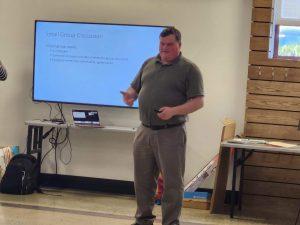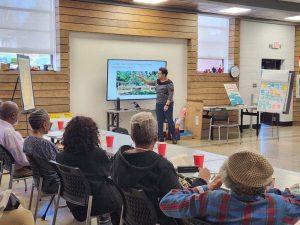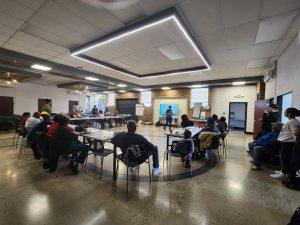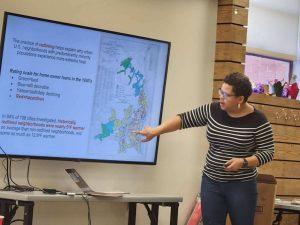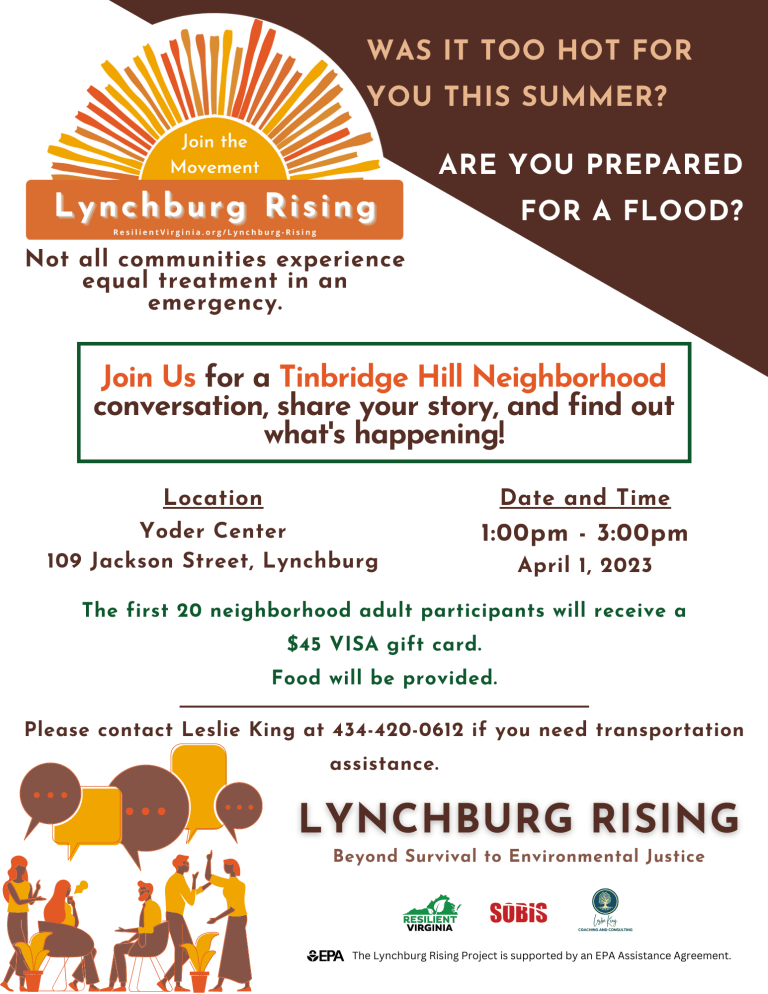
Neighborhood Strengths and Assets
- Talking to seniors and hearing their stories
- Churches – 5th Street, 3rd Street and Jackson
- Racially diverse
- Legacy Museum
- Old City Cemetery
- CAN
- Family
- Homes renovated – Affordable housing
- Beautiful scenery
- Feel safe
- Tinbridge Hill Mana
Exploring the Issues: Heat, Flooding, Hazardous Materials & Other
Heat
- Federal Street
- Otey Street
- Jackson Street and Hollins
- 5th and Federal
- Used to be 2 Oak trees
- Pecan lot – less trees
- Used to be an orchard where the garden is located
- Polk Street
- Less trees at Legacy Museum – planted 2 trees
Flooding
- 523 Harrison Street
Hazardous Material and Other
- Hollins and Jackson – dumping ground
- Harrison Street
- 1st and Jackson
- 1st and Federal
- 6th Street – pavement is uneven
Opportunities for Change
Individual
- Inform the City to see if any changes can be made
- Try to help my community
- Come to meetings and voice my opinion
- Be a part of the solution by leading
Do With Others
- Exchange phone numbers and call/text neighbors
- Work together to clean things up
- Start a neighborhood watch
- Have a conversation about the issue
- Engage others
- Sign petition and make the people in power fix the issues
- Come together as a team and build
Institutions and the Local Government
- Speak up on the redline issues
- Have a meeting like this one to listen to the people who live there
- Try to offer anything to help out
- Ask the people in the neighborhoods what needs to be addressed
- Fund improvements
- Supply tools
- Do something when citizens call them

